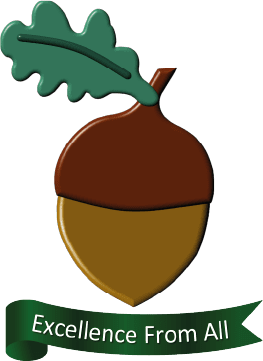Science Subject Leader: Mr F Kotze and Mrs J Hatton
As a core subject, children are able to learn in a variety of different ways about how the world works. We encourage our pupils to be curious about how things work and give them the skills to develop key knowledge of the application of science.
Intent
The current National Curriculum for Science aims to ensure that all children:
- develop scientific knowledge and conceptual understanding through the specific disciplines of biology, chemistry and physics
- develop understanding of the nature, processes and methods of science through different types of science enquiries that help them to answer scientific questions about the world around them
- are equipped with the scientific skills required to understand the uses and implications of science, today and for the future. We understand that it is important for lessons to have a skillsbased focus, and that the knowledge can be taught through this.
At Cliffe Woods, we encourage children to be curious throughout their time at the school and beyond. Beginning in the Early Years Foundation Stage children encounter, question and consider the world around them. This is incorporated into their literacy, maths and Understanding the World strand of learning.
From Year One, the Science Curriculum fosters a healthy inquisitive nature in children about our universe and promotes respect for the living things. We believe science encompasses the acquisition of both procedural and semantic knowledge, concepts and positive attitudes. Throughout the milestones the children will acquire and develop key knowledge as well as the application of scientific skills.
We ensure that the concept of working scientifically is built upon and developed throughout children’s time at the school so that they can apply their knowledge of science when using equipment, conducting experiments, building arguments and explaining concepts confidently and continue to ask questions and be curious about their surroundings.
During their journey from EYFS to Year Six children are given the opportunity to revisit key topic areas, developing their knowledge and understanding as well as relating this to the seasons and personal growth.
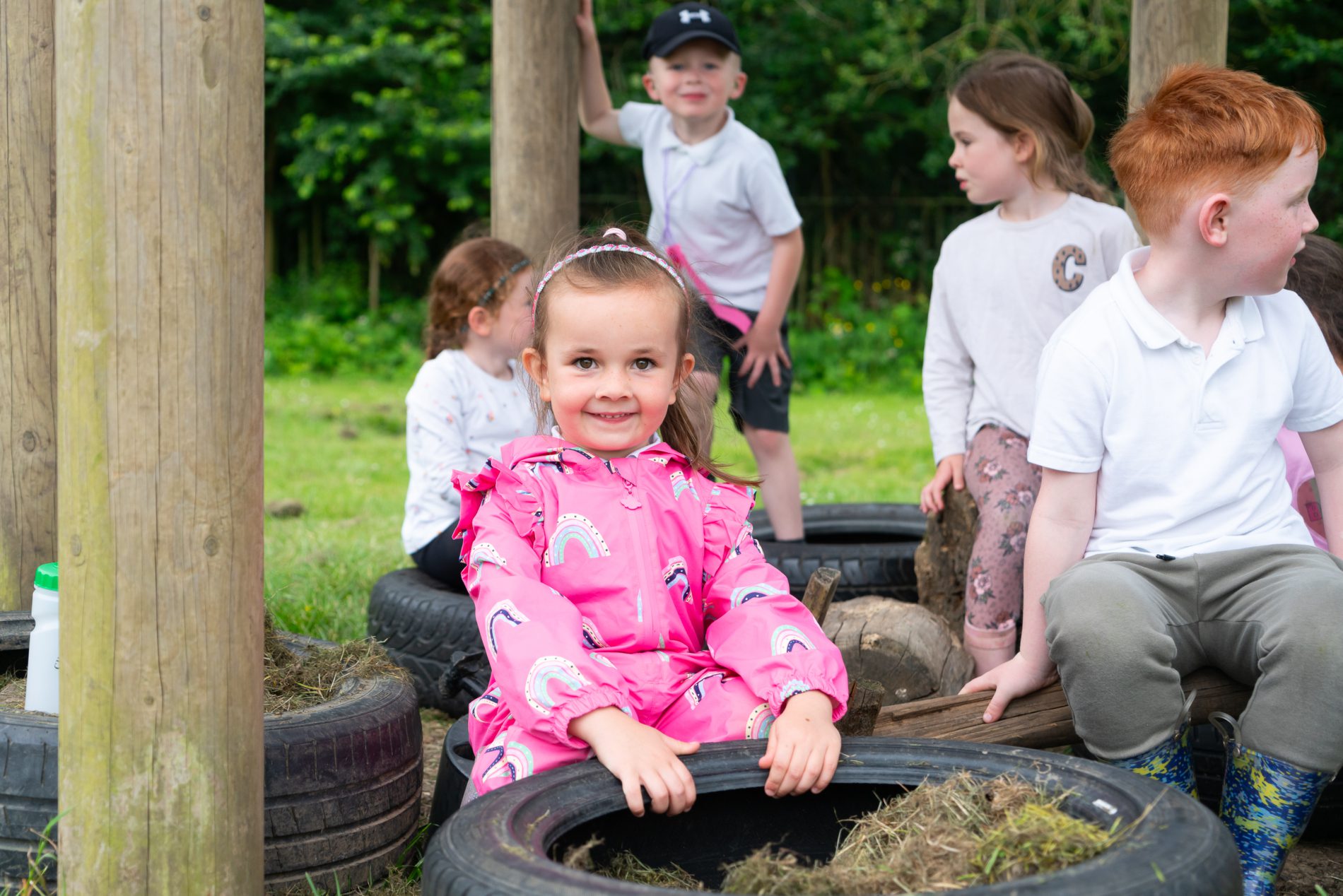
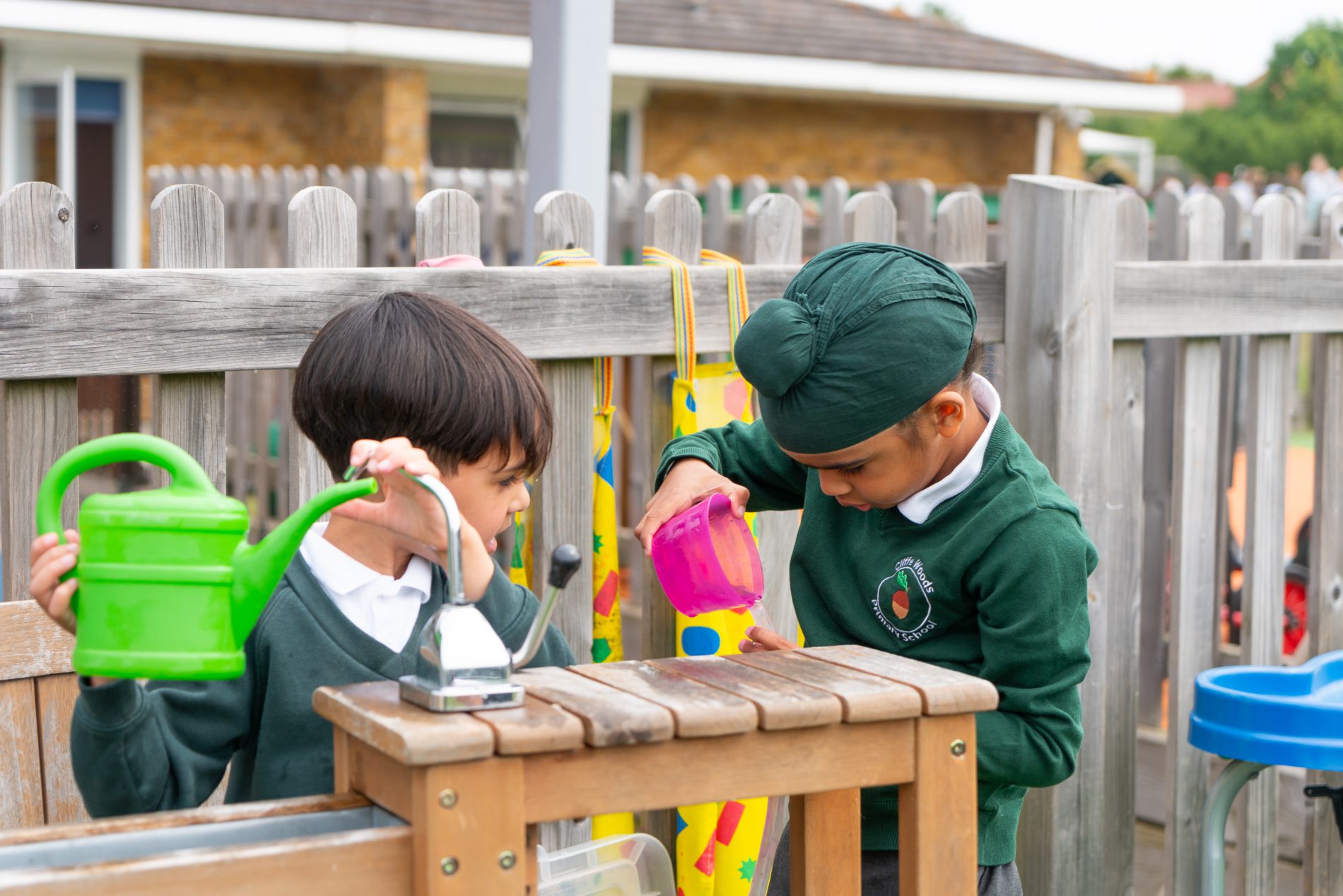
Implementation
Teachers create a positive attitude to science learning within their classrooms and reinforce an expectation that all children are capable of achieving high standards in science. Our whole school approach to the teaching and learning of science involves the following;
- Discrete science lessons are planned and taught by the class teacher strategies to enable repetition and a deeper understanding of learning.
- Each programme of study from the National Curriculum is taught in every year group to ensure repetition and mastery. The milestones build on previous learning for each programme of study.
- Lessons involve problem-solving opportunities that allow children to find out for themselves. Children are encouraged to ask their own questions. There are opportunities to use their scientific skills and independent research to discover the answers.
- Curiosity is celebrated within the classroom. Teachers create engaging lessons and learning scenarios from EYFS to Year Six. Teachers use precise questioning in class to test conceptual knowledge and assess children regularly to identify those children with gaps in learning so that all children keep up. This aids language development, building rich vocabulary and a broad linguistic skill set necessary for reading comprehension in all areas.
- We build upon the learning of the previous years. As the children’s knowledge and understanding increase, they become more proficient in selecting, using scientific equipment, collating, and interpreting results. Our teaching enables children to become increasingly confident in their growing ability to come to conclusions based on real evidence.
- The idea of working scientifically is embedded into lessons and developed throughout the children’s school career. New vocabulary and challenging concepts are introduced through direct teaching in keeping with the topics.
- Teachers demonstrate how to use scientific equipment and the various ways of working scientifically to embed scientific understanding. Teachers find opportunities to develop children’s understanding of their surroundings by accessing outdoor learning and workshops with experts.
- Children are offered a range of extra-curricular activities, Science Week, visits and visitors to complement and broaden the curriculum. These are purposeful and link with the knowledge being taught in class while extending the acquisition and application of skills.
Impact
The approach at Cliffe Woods results in an engaging, high-quality science education, that provides children with the foundations and knowledge for understanding their world.
This begins in EYFS with a cycle of learning based on the natural world in particular change and growth. By Year Six children have developed vocabulary, critical thinking and tuned observation skills to fluently express their learning. Our engagement with the local environment ensures that children learn through varied and first-hand experiences of the world around them. Through various workshops, visits and interactions with experts, children have the understanding that science has changed our lives and that it is vital to the world’s future prosperity. Children learn the possibilities for careers in science and role models are revealed where ever possible. Children at Cliffe Woods overwhelmingly enjoy science and this results in motivated learners with passionate scientific understanding.
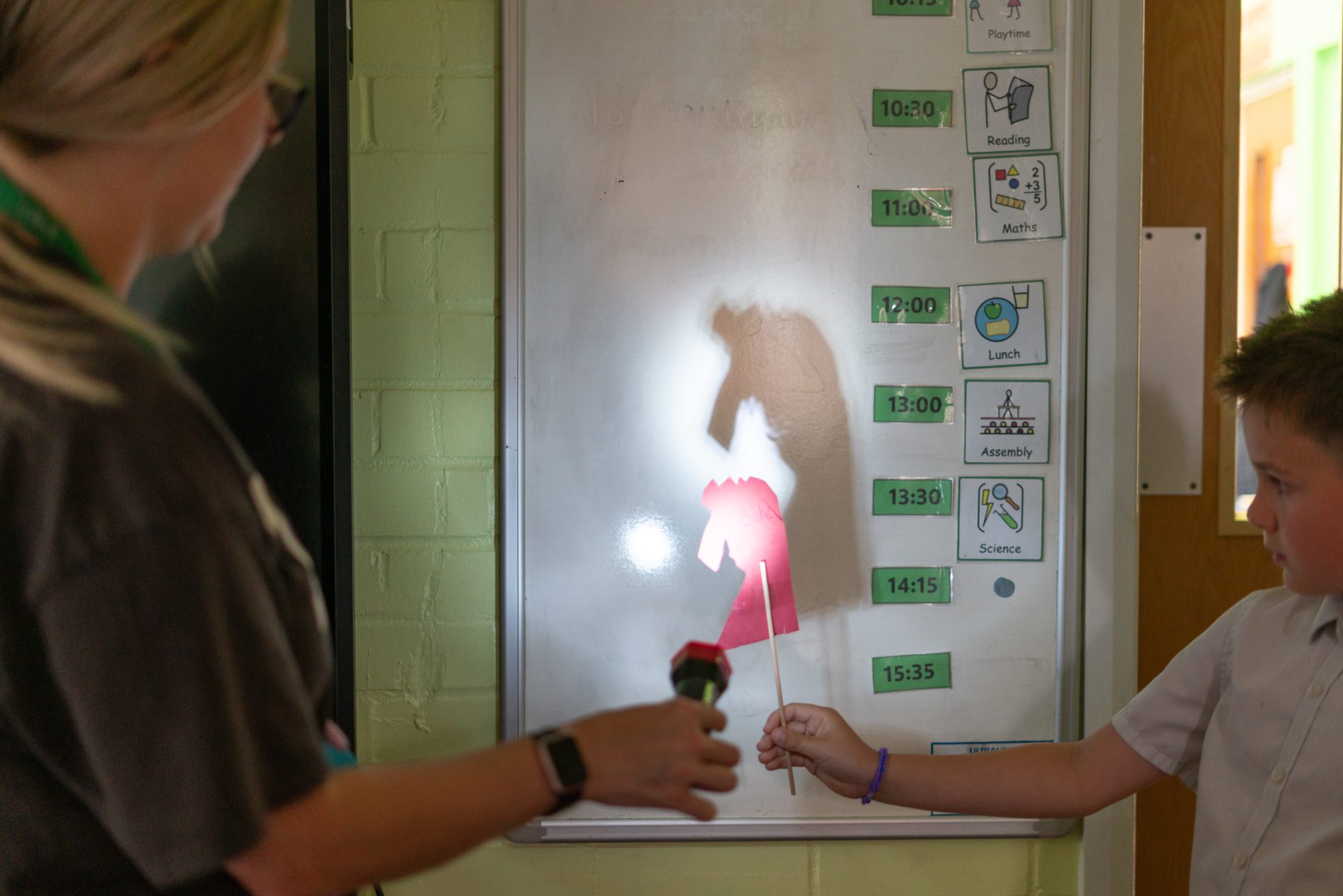
Science in Each Stage
In EYFS a base of core science learning is laid during Understand our World work. This allows children to explore growth, habitats, keeping healthy, materials, changing states and many natural processes. Learning is hands-on and often child initiated with effective teaching and learning often taking place at Woodland Adventure.
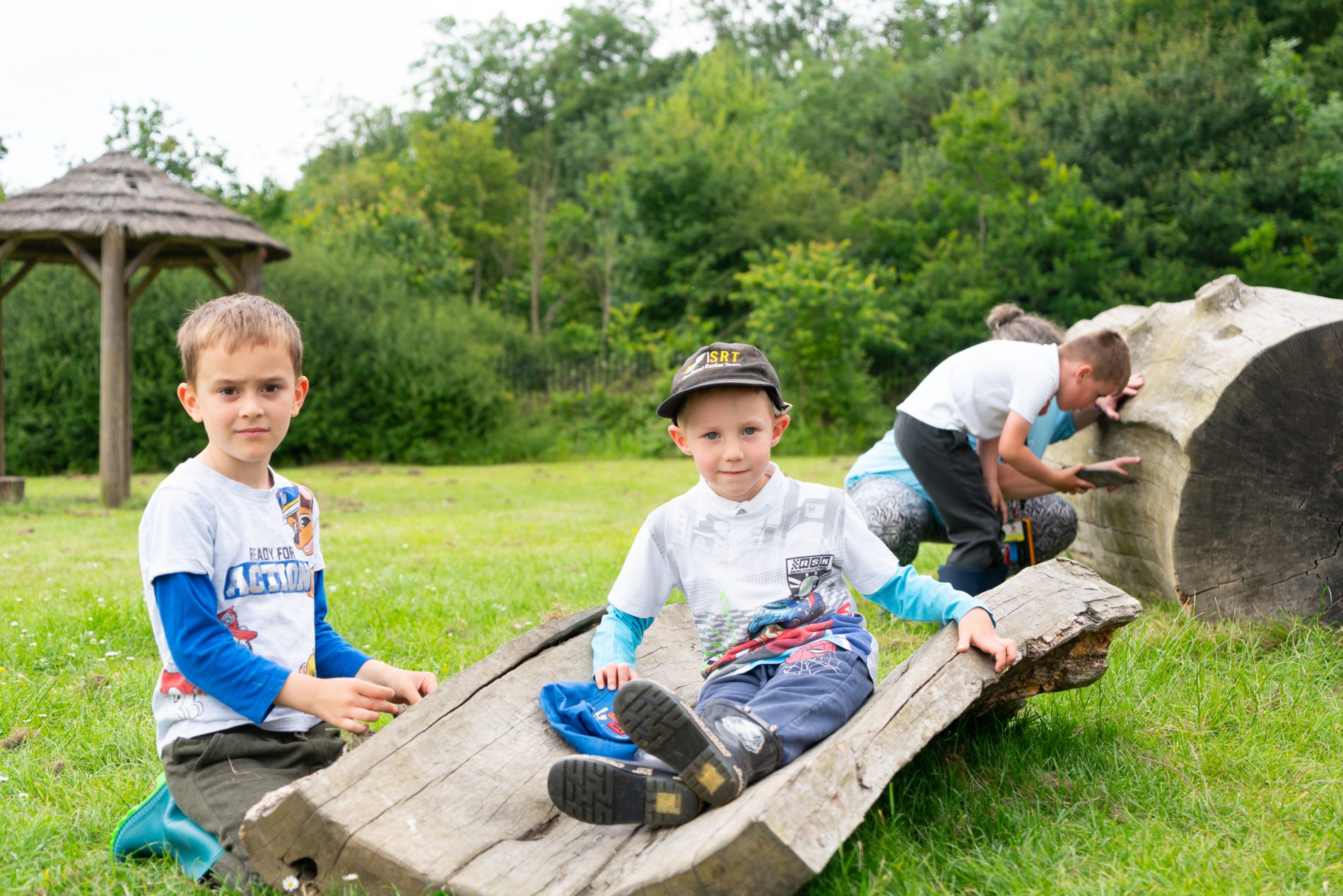
Throughout KS1, pupils will learn a range of topics and skills to help further their understanding of the way the world works. This includes identifying the basic structure of plants, habitats, and material properties, identifying the changes of seasons in the natural environment, and basic force movements.
The science education the pupils receive is split into biology, chemistry, and physics. Each of the topics they are taught will be in further detail as they progress throughout their school years.
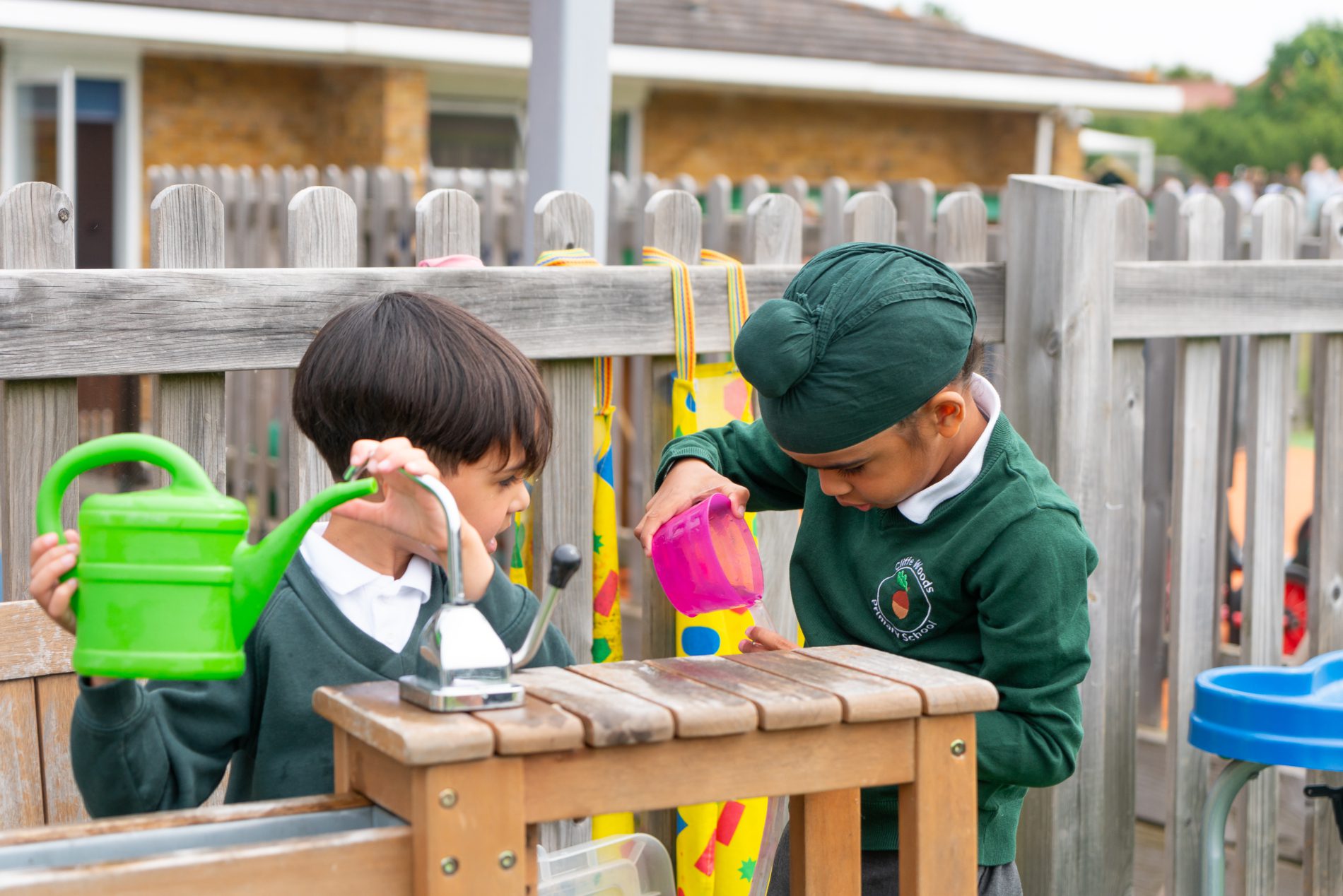
Throughout KS2, pupils will learn a range of topics and skills to help further their understanding of the way the world works. This includes gaining a more advanced knowledge of the structure and life cycle of plants including adaptation and evolution, as well as animals and humans, states of matter, Earth and Space, and Electricity.
The science education the pupils receive is split into biology, chemistry, and physics. Each of the topics they are taught will be in further detail as they progress throughout their school years.
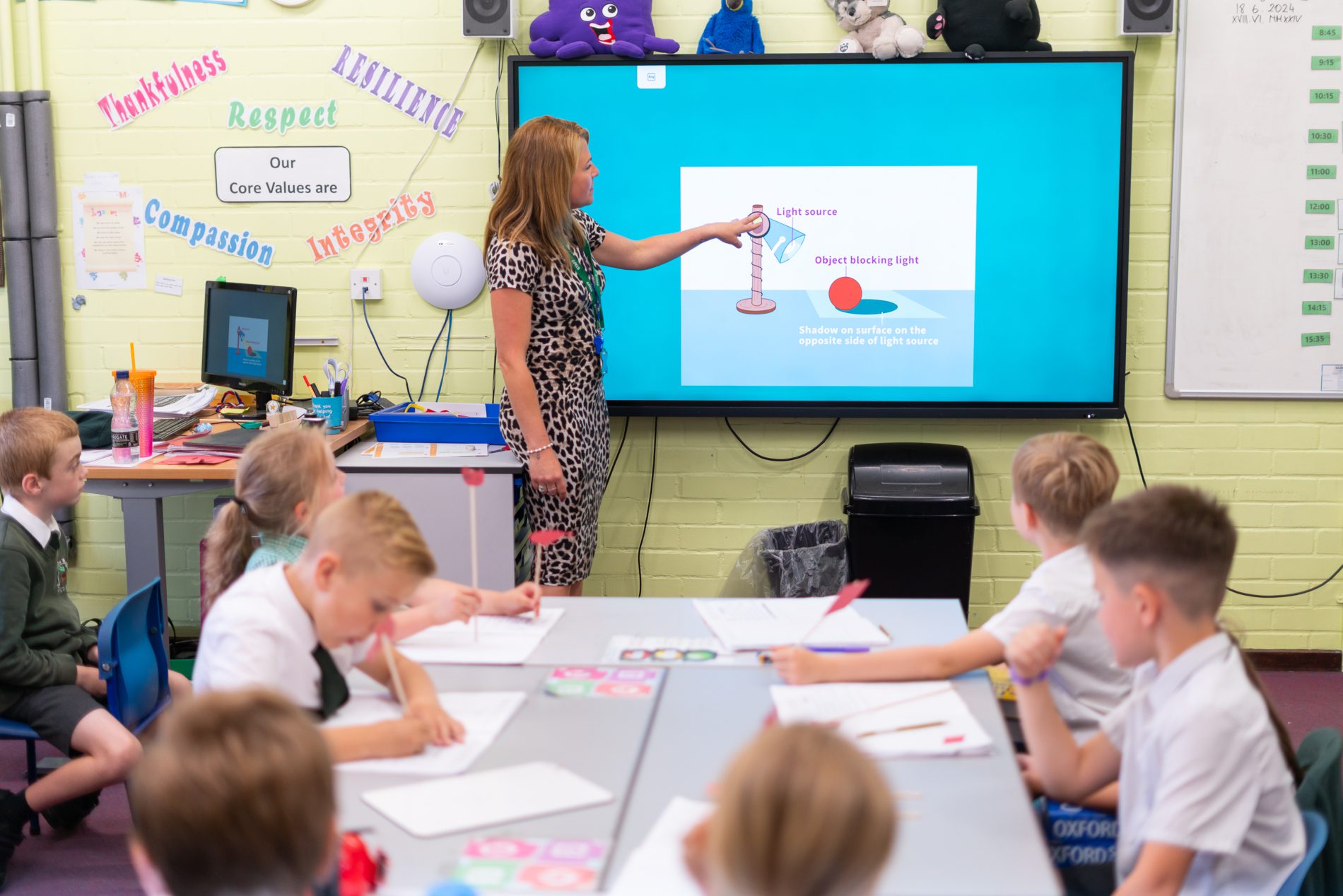
Science Progression
At Cliffe Woods, we expand our pupil’s Science knowledge through essential skills; increasing their depth of understanding year after year. The use of ‘ end of year expectations ‘ to monitor pupils’ progress, allows adaptations and further support where required, to provide a strong Science education.
SEND Information
Our SEND and disadvantaged pupils are given the necessary support in class to fully access the supported Science curriculum. Learning is adapted where necessary to support SEND/EAL pupils to give equal opportunities for all to be confident in approaching any problems faced. Interventions, support and challenges are constantly revised and adapted to ensure all children are supported in achieving learning. The above areas are robustly and continuously monitored to ensure any gaps in learning are addressed.
